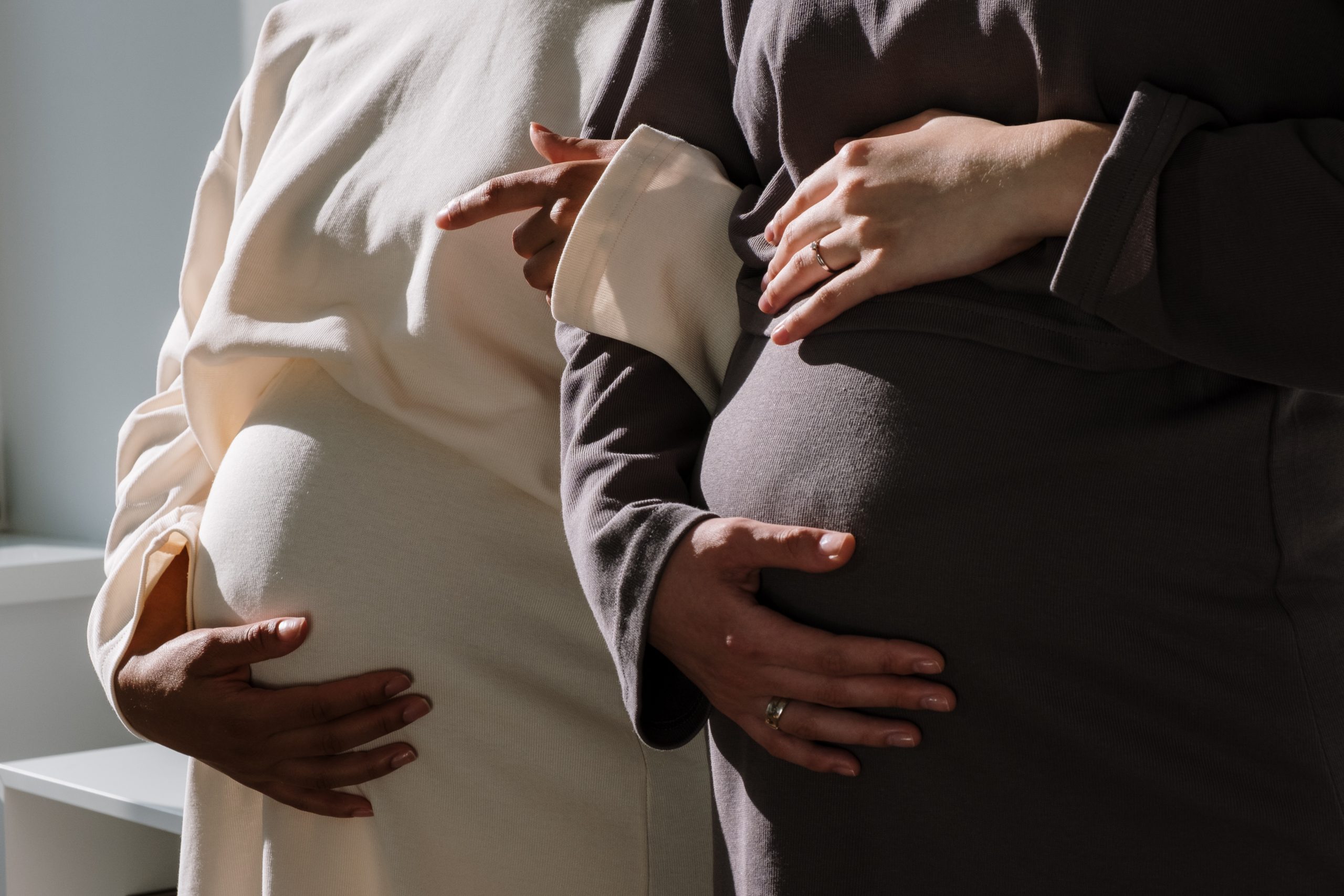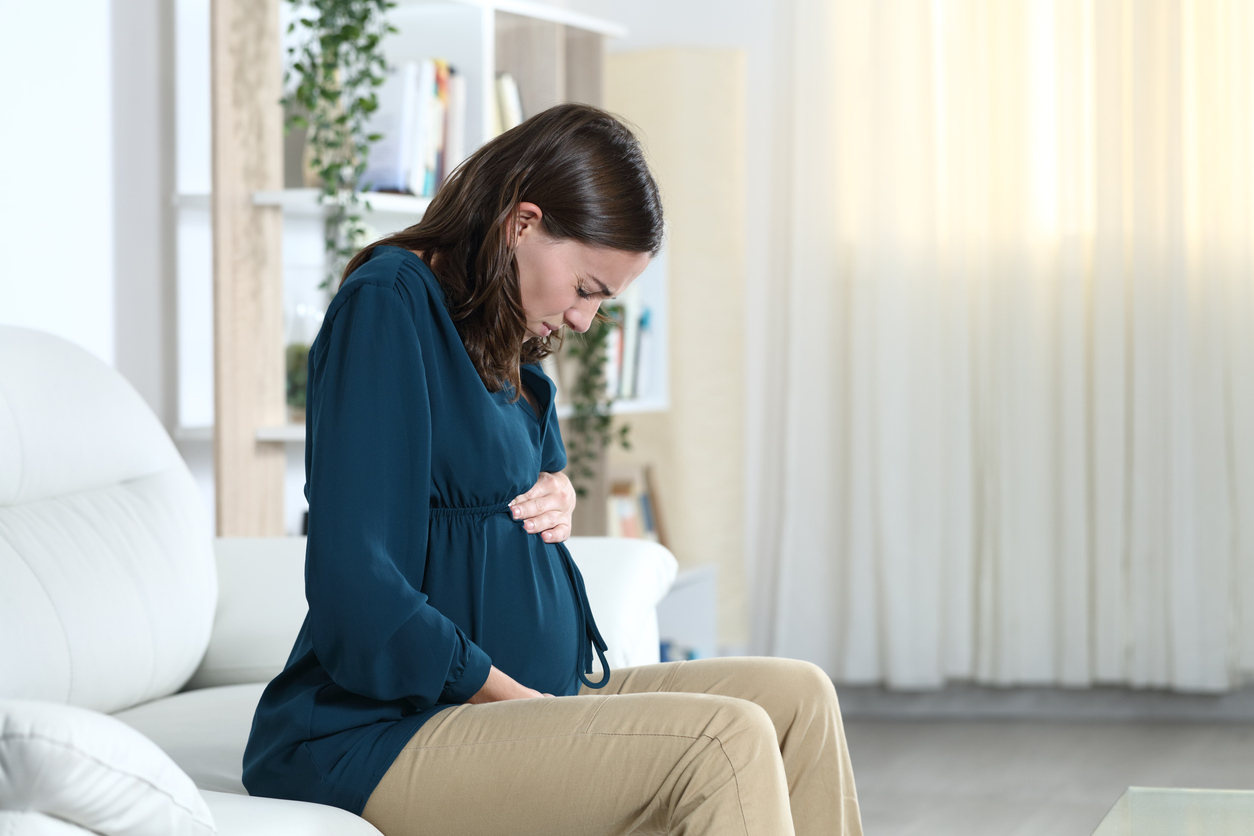Simply put, a nosebleed is the loss of blood from the tissue that lines the inside of your nose. Also called Epistaxis, it can easily occur as a result of the location of the nose and the closeness of blood vessels in the lining of your nose.
While it is no cause for alarm as it seldom occurs and can be easily treated, it is not always the case during pregnancy.
Nosebleeds during pregnancy are more frequent, which can cause alarm as many women don’t know the cause of the frequent blood coming out of their noses.
Is pregnancy nosebleed dangerous? Is pregnancy nosebleed common? Am I the only one experiencing pregnancy nosebleed? Can pregnancy nosebleeds be stopped? These questions and more will be extensively answered in this article. So, keep reading to learn all the detailed information about pregnancy nosebleeds.
Nosebleeds During Pregnancy
As backaches, frequent hunger, weird cravings, and so on are pregnancy norms, pregnancy nosebleeds are also normal and generally not something to worry about.
Nosebleeds are most times caused by an increase in blood size and hormonal changes. One way to stop a nosebleed at your home is by pinching your nostrils simultaneously.
However, pay a visit to your healthcare giver if you have frequent serious nosebleeds so that complications can be cleared off.
Why do Pregnant Women Have Nosebleeds?
During pregnancy, the expansion of blood vessels in your nose due to the pressure of all the new blood moving through your body makes you more prone to nose bleeds.
Medical studies have it that your blood supply increases 50% when you are pregnant.
Imagine a tire is filled with air at a pressure that is more than what it can take; it will eventually burst due to the pressure. This is the same way your blood vessels break easily when constantly pressured during pregnancy because they are more delicate and cannot withstand high pressure.
Your hormones switch during pregnancy. This can cause a stuffy or blocked nose which can add to the reason why you get nosebleeds as a pregnant woman. However, Epistaxis is rectifiable and seldom causes any issue during pregnancy.
Are Pregnancy nosebleeds common?
Statistics show that pregnancy nosebleeds are rarely common, but they do occur. A study revealed that around 20% of people encounter pregnancy nosebleeds. At the same time, 6% of people (not pregnant) experience it. So, you don’t have a problem if you experience pregnancy nosebleeds.
POSSIBLE SOURCES OF PREGNANCY NOSEBLEEDS
All pregnant women experience changes in their bodies during pregnancy which cause nosebleeds.
There are a few sources or reasons why pregnancy nosebleeds occur:
- Hormonal changes
As aforementioned, hormonal changes generally can cause a lot of signs and symptoms in pregnancy which include pregnancy nosebleeds.
The hormones that stop menstruation, cause discharges, and thicken your uterus lining during pregnancy can influence the fat mucosa (mucous membrane) in your nose, making them liable to bleeding.
- The rise in blood volume
The size of blood in your body rises drastically during pregnancy. This rise in blood size causes fragile blood vessels in the lining of your nose to burst more effortlessly due to the pressure.
- Seasonal allergies or colds
Seasonal allergies or colds impact the blood vessels in your nose to become easily inflamed and troubled, which makes them prone to bursting. Thus, if you have seasonal allergies or colds during pregnancy, you are prone to having pregnancy nosebleeds.
- Dehydration
Dryness is a major accomplice of dehydration. When you are dehydrated, parts of your body become dry; for example, the mucous membranes in your become dry and cracked, which would lead to nose bleeding.
Know that it is easier to become dehydrated when pregnant because you require more water; as a result, nosebleeding can occur.
- Nose-picking
With the increased pressure and blood volume in your blood vessels during pregnancy, nose-picking can cause pregnancy nosebleeding. The length and sharpness of your fingernails can cause a tear in your nose, thereby leading to nose bleeding.
How Frequently Does Pregnancy Nosebleeds occur?
In the same way signs of pregnancy vary in each person, the frequency of pregnancy nosebleeds differ in each person also. While some people will have nosebleeds every day during pregnancy, some will have them a few times only during their entire pregnancy.
Also, the volume of blood and the frequency of pregnancy nosebleeds vary. It can occur between a light flow that fills tissue paper and a massive flow that will take a roll of tissue which might feel scary.
Nonetheless, if you notice that your pregnancy nosebleeds occur more than three times a day, talk to your doctor at your next prenatal class.
Are You The Only One Experiencing Pregnancy Nosebleeds?
You would have seen from the contents of this article that pregnancy nosebleeds are common among women, so this answer is no.
When Do Pregnancy Nosebleeds start?
Pregnancy nosebleeds mainly occur in the first three months of pregnancy and can last until the delivery of your cute baby.
It should be noted that there isn’t a definite starting line for pregnancy nosebleeds. This is because we are all different, and pregnancy nosebleeds depend on each person, their allergies, their lifestyle, their medical track record, and many other factors.
Can Pregnancy Nosebleeds be stopped?
Pregnancy nosebleeds can be stopped by taking some steps, which are listed below.
- Keep your head straight up when your
nose is bleeding. Having one’s head downward or backward will increase the flow.
- Lightly squeeze your nostrils closed
simultaneously. You should do this for 10 minutes thereabout. If it hasn’t stopped, keep trying.
- If it is a heavy flow, lean forward so as
not to choke on blood.
- The application of an ice bag or cold bag of vegetables can help to compress the blood vessels and, as a result, stop the bleeding.
Ways To Avoid Getting A Nosebleed.
- Use a humidifier to dampen the air
when asleep.
- Drink lots of water to stay hydrated.
- Avoid nose picking.
- Gently blow your nose.
However, it must be added that pregnancy nosebleeds sometimes cannot be avoided, despite your good efforts or your doctor. Either way, take note of the above to avoid getting a pregnancy nosebleed.
Is Pregnancy Nosebleeds Dangerous?
As previously mentioned, pregnancy nosebleeds are generally not an emergency. Experiencing it is usually okay. Yet, you should not fail to call your doctor as soon as possible if:
i) You start to feel lightheaded or dizzy.
ii) The flow is very massive.
iii) The bleeding seems to get worse.
iv) Your nose is bleeding after an injury to the head.
v) You have high blood pressure.
vi) The blood flow continues after 30 minutes of applying pressure to your nostrils.
vii) You have trouble breathing.
CONCLUSION
If you experience pregnancy nosebleeds, it is common and often harmless. Home remedies can be applied to stop the bleeding, for example, keeping your head straight up and pinching your nose simultaneously for about 10 minutes.
However, call your health care center if the bleeding is massive and lasts longer than 30 minutes or if you have trouble breathing.
FAQs
At What Age Can You Have Nosebleeds?
You can have nosebleeds right at the point of birth. Therefore, it cuts across all ages.
Are Nosebleeds A Sign Of Anemia?
Anemic people suffer from nosebleeds, but there isn’t a certain link to anemia causing nosebleeds.
Nevertheless, note that prolonged and excessive nosebleeds can cause anemia.
Can My Nosebleeds Affect My Unborn Baby?
As long as doctors or health care providers clear out cases of pregnancy complications due to pregnancy nosebleeds, it cannot affect your unborn baby.






